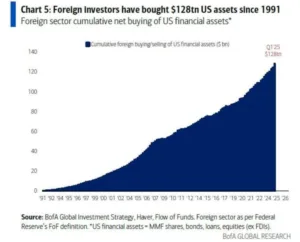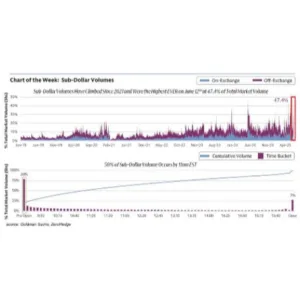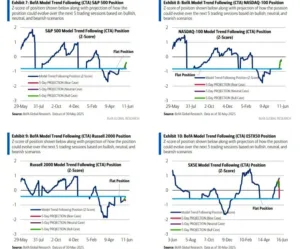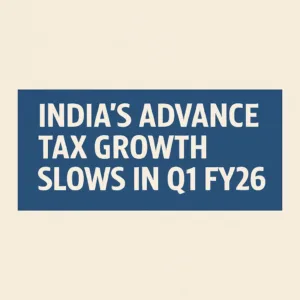In October, India’s NSE Nifty 50 Index fell by 6.2%, marking its worst monthly decline since March 2020, due to increased foreign outflows. According to Jefferies Financial Group, earnings estimates for fiscal 2025 have been reduced by 2.2% during this reporting season. Despite this drop, the Nifty is still up over 10% for 2024 and is on track for its ninth consecutive year of gains, largely thanks to more than $50 billion in share purchases by domestic institutions.
Joanne Goh from DBS Bank believes that domestic liquidity will continue to support the market, with earnings growth expected to be around 15% and the Sensex potentially reaching new highs. Even with the recent decline, the Nifty 50 is still the most expensive stock index in emerging Asia, trading at over 21 times its 12-month forward earnings, compared to a five-year average of 19.4 times. Brian Kersmanc from GQG Partners pointed out that some sectors preferred by global investors have become overvalued.
Foreign investors are pulling back from India’s stock market, selling more than $10 billion in shares in October, which is pushing the benchmark index closer to a technical correction. After being a popular investment destination due to strong economic growth and rising corporate profits, India’s attractiveness is diminishing as equity valuations reach some of the highest levels globally and economic growth slows down. Additionally, Chinese stocks are bouncing back after recent stimulus measures. Analysts believe that while foreign selling might slow down, investors will likely stay cautious, expecting both earnings growth and valuations to decrease further.
Jefferies Downgrades Earnings Forecasts Amid Economic Slowdown Impacting Top Indian Companies
The slowdown in the economy is putting pressure on India’s top companies. Global brokerage firm Jefferies has made its biggest cut in earnings estimates for companies in the past four years.
Jefferies has downgraded earnings estimates for about 60% of 98 companies it analyzed for FY25, marking the largest downgrade ratio since early 2020. According to Jefferies, “above-average rainfall and lower government spending have impacted the companies’ results.”

While a clearer trend in declining corporate earnings will likely be visible in the December quarter results, some signs of a slowdown are already apparent. Jefferies estimates that the earnings per share (EPS) growth of Nifty companies will be around 10% this financial year.
Jefferies analyzed the September results of 98 companies and downgraded earnings estimates for 63% of them, while upgrading estimates for 32%. The biggest cuts in EPS forecasts have been for companies in sectors like cement, oil, financials, auto, and consumer goods.
The economy’s slowdown is affecting urban demand, which in turn is impacting companies. After recent results, many company leaders mentioned weakened consumption in products ranging from food items and shampoos to cars and motorcycles.
India’s diesel market is slowing, with flat October sales of 7.64 million tons, the slowest since 2020, while gasoline sales rose 8.4% to 3.4 million tons.

Contrary to the Reserve Bank of India’s optimistic outlook, Nomura Global Market Research expects India’s economic growth to slow in the third quarter of FY25. The decline in tax revenue growth last month has also raised concerns about economic weakness. The increase in GST collections in September was just 6.5%, the slowest in 40 months.
Recently, Nifty has dropped 8.8% from its peak, while mid-cap and small-cap indices have fallen by 7.3% and 4.5%, respectively. According to NSE provisional data, global funds have sold stocks worth Rs 1.25 lakh crore since September 27, while domestic institutions have been net buyers of stocks worth Rs 1.20 lakh crore during the same period.
Despite a recent selloff, MSCI India trades at 22 times forward earnings, above its two-decade average, while retail interest rises with 30M new accounts in eight months.

India’s retail loan defaults are rising due to aggressive lending, affecting stocks of lenders like Kotak and IndusInd, which report stress in unsecured loans. Smaller lenders face sharper declines, and analysts warn of ongoing challenges if demand doesn’t improve. In August, personal loan growth fell to 14% from over 30% a year ago, with Ujjivan Small Finance Bank and IIFL Finance anticipating continued difficulties. Microfinance stocks like Fusion Finance and Spandana Sphoorty have dropped over 60%, hurting consumer demand for large purchases.

Update, November 10, 2024
Jefferies India recently lowered its FY25 earnings forecasts for two-thirds of the companies it tracks after they reported September quarter results, marking the largest downgrade since 2020. The downgrades are attributed to a slowdown in the economy, with 63% of the 121 companies affected. Jefferies now expects Nifty 50 earnings to grow by just 10% for FY25.
The broader stock market has faced selling pressure from foreign investors, with $11 billion in shares sold in October, causing Nifty 50 to drop 6.2%. However, the Nifty is still up 11% for the year. The outlook for Asian equity markets, especially China, has also become uncertain, with China taking steps to ease debt limits but not offering fiscal stimulus.
Foreign investors may remain cautious, as concerns over consumer spending in sectors like automotive and FMCG suggest urban India is cutting back due to affordability issues. A CNBC-TV18 analysis showed that 86 out of 143 NSE 200 companies saw downgrades in their earnings forecasts for FY25. Key sectors affected include steel, energy, and power.
Goldman Sachs downgraded its view on India due to slowing growth and high valuations. Jefferies, however, remains cautiously optimistic, noting strong domestic demand and increasing equity supply. On a longer-term basis, Jefferies is bullish, predicting a $10 trillion equity market for India by 2030. They also believe that future growth will come from sectors like infrastructure, manufacturing, and healthcare, which are not yet overpriced.
Jefferies’ Wood Sees Healthy Market Correction Amid Earnings Downgrades
Update, November 12th, 2024
The recent correction in the Indian market, especially in small and mid-cap stocks, is mainly due to Q2 earnings, which saw the biggest downgrades for India Inc. since early 2020, as per Jefferies’ analyst Christopher Wood.
Jefferies India lowered its FY25 earnings estimates for 63% of the 121 companies it tracks, marking the highest downgrade ratio since 2020. These downgrades are attributed to a cyclical slowdown affecting earnings growth.
Despite concerns over earnings and foreign outflows affecting short-term market performance, domestic investor interest remains strong. Jefferies also noted a rise in equity supply, with $7 billion per month, totaling around $60 billion for the year. This supply is being matched by domestic demand, creating a more balanced market.
Wood maintains a long-term bullish view on Indian equities, seeing the recent correction as healthy, especially as it has affected the most expensive parts of the market. He remains positive about private sector banks, which are now performing better and could benefit from a potential cut in the cash reserve ratio (CRR) by the RBI.
Jefferies also highlighted that the RBI’s shift to a neutral stance on liquidity should ease concerns in the sector. The convergence of credit and deposit growth, along with better deposit growth and easier liquidity, should support banks’ net interest margins.
Jefferies maintains its $10 trillion market capitalization forecast for India by 2030. They believe that, although valuations may appear high, they reflect India’s strong growth potential driven by retail investors. Foreign investors often see India as costly, focusing on legacy sectors like financials, consumer staples, and tech services.
Bringing you the latest updates on finance, economies, stocks, bonds, and more. Stay informed with timely insights.












7 Comments